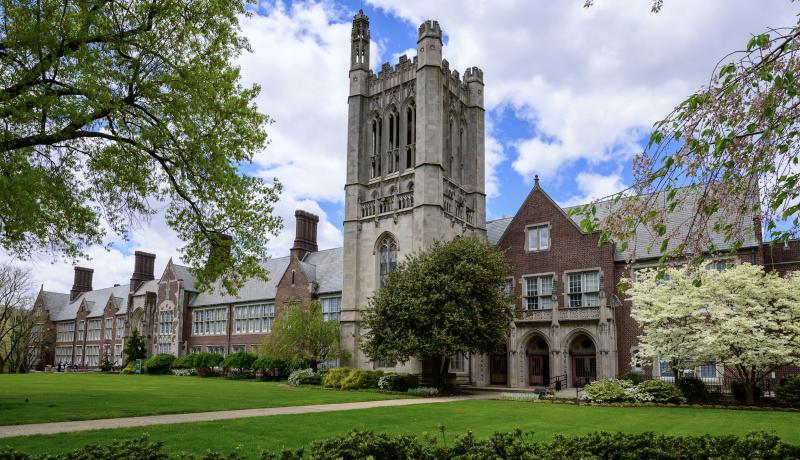Academic Affairs Announcement on Academic Portfolio Reduction Actions

Dear Members of the NJCU Community:
In a communication to the university community on November 14, we discussed the charge the Division of Academic Affairs was given to reduce the size of our academic portfolio as part of our ongoing rightsizing efforts — a portfolio which is currently larger than many universities that are more than double our size. As this process began, the university maintained 101 undergraduate programs, 67 master’s programs, and three doctoral programs.
Simply put, a portfolio that size is not tenable for the future sustainability of the university mission. It has stretched our current resources beyond our administrative capabilities and our ability to adequately support them, and the low enrollment in many courses can be linked to students’ inability to complete their degrees in a timely manner. We cannot sustain so many programs.
After a painstaking process, the Division of Academic Affairs is announcing today that it has responded to the ongoing university-wide rightsizing efforts by reducing its academic portfolio by 37%. The full list of impacted programs can be found here.
To accomplish a reduction of this magnitude, the University is sunsetting 48 undergraduate programs, 24 minors, 28 graduate programs, 10 certificate programs, and one doctoral program.
The academic deans of each of our four colleges, in collaboration with the acting provost, worked to identify these programs by focusing on the NJCU’s vital role as a minority serving institution and weighing the viability of programs according to mission, market, and margins.
It is essential to emphasize that current students enrolled in the programs identified for closure will be able to complete their programs without any obstacle on their pathway to graduation. In most cases, students who were considering any impacted program will still find similar programs available.
Students with questions specific to their academic program should direct those inquiries to the dean’s office in the college they are enrolled. Each Dean, email address and phone numbers are listed at the bottom of this communication.
NJCU entered Fiscal Year 2023 with a structural deficit of more than $20 million and today’s measures are a critical next step in the university’s need to reach budget neutrality by June 30, 2023. Throughout this difficult process, multiple measures have already been implemented, including a 41 percent reduction in the management-level workforce at the university since the pandemic — from 125 to 73 — highlighted by a reorganization of the senior administration and leadership announced on November 14, and the elimination of five athletic sports programs earlier this week.
As a result of the university’s reduction in academic programs, up to 30 tenured faculty will receive notice that their position may be eliminated as of June 28, 2023. Additionally, the university will not renew the contracts of up to 19 non-tenured annually-appointed faculty and professional staff for the 2023-24 academic year.
Despite the previous announced measures, prior to today’s action the university still had a $12.67 million deficit it needed to address. While the savings from these cuts will not be fully realized until the next fiscal year (FY 2024), after annualized savings from the portfolio reduction are realized, it is expected these rightsizing steps will be significant in positioning the institution to move forward beyond our current fiscal emergency, with projected future annual savings of at minimum $5 million.
These decisions are sobering and painful yet necessary. While the reality is these layoffs will impact a significant number of people, the quantity of reductions in force necessitated by the financial crisis declared by the Board of Trustees in June was greatly reduced because of the unprecedented collaboration between the institution’s administration and the labor unions, in particular the leadership of the AFT Local 1839, which represents our faculty and a significant number of professional staff. These measures have included furloughs, suspension of stipends and professional travel, and reduced compensation for doctoral advising.
It is true that these latest shared sacrifices will result in closing programs while losing talented faculty and staff. Reducing our academic portfolio was a challenging process and the greatest pain in the decision-making process lies in the fact that we will need to say goodbye to some outstanding, deeply committed professionals and dedicated servants to our mission. However, we believe that with today’s announcement of these necessary reductions, we will position the university to invest in its mission and to serve New Jersey’s students for years to come.
Sincerely,
Jason Kroll
Acting President
New Jersey City University
Donna Adair Breault, Ph.D.
Acting Provost and Executive Vice President of Academic Affairs
New Jersey City University
NJCU Students: Who to Contact with Questions on Academic Programs
The William J Maxwell College of Arts & Sciences
Interim Associate Dean of Humanities, Arts and Social Sciences: Dr. Jason Martinek
jmartinek@njcu.edu
201-200-3001
Associate Dean of Science: Dr. Scott Mittman
smittman@njcu.edu
201-200-3001
The NJCU School of Business
Dean: Dr. Bernard McSherry
schoolofbusiness@njcu.edu
201-200-2001
The Deborah Cannon Partridge Wolfe College of Education
Dean: Dr. Donna Breault
dbreault@njcu.edu
201-200-2101
The College of Professional Studies:
Acting Dean: Marvin C. Walker
mwalker5@njcu.edu
201-200-3321